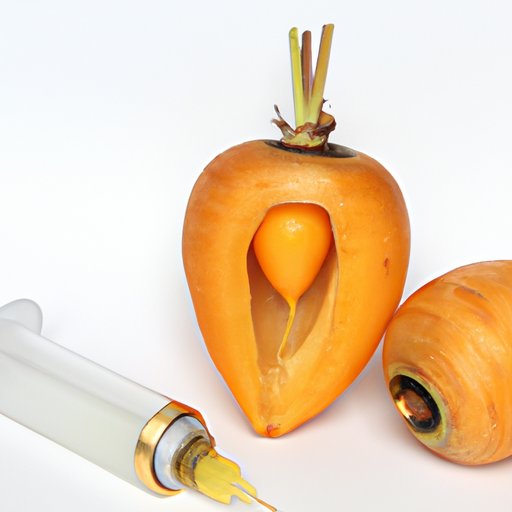I. Introduction
Strep throat is a common bacterial infection that affects the throat and tonsils. It’s caused by group A Streptococcus bacteria and is highly contagious. Strep throat is usually diagnosed with a rapid strep test, which involves swabbing the back of the throat. It’s important to treat strep throat promptly to prevent complications like rheumatic fever.
II. Home remedies for treating strep throat
While antibiotics are the most effective treatment for strep throat, home remedies can help alleviate symptoms and promote healing. Gargling with warm salt water can help soothe a sore throat, and drinking warm liquids like tea or soup can provide relief. Using a humidifier or taking a steamy shower can also help ease throat pain and congestion. Resting and staying hydrated are also crucial components of at-home strep throat treatment. In addition, certain herbal remedies like honey, ginger, and echinacea may have anti-inflammatory and antibacterial properties that can aid in recovery.
III. A doctor’s guide to antibiotics for strep throat
Antibiotics are typically prescribed to treat strep throat because they can clear up the infection quickly and prevent complications. Common antibiotics for strep throat include penicillin, amoxicillin, and azithromycin. It’s important to take the full course of antibiotics as directed by your doctor, and to be aware of potential side effects like upset stomach or diarrhea. If the first round of antibiotics doesn’t work, your doctor may prescribe a different type or order further testing to confirm the diagnosis.
IV. Combating the painful symptoms of strep throat
Strep throat can be incredibly painful, but there are ways to alleviate symptoms. Over-the-counter pain relievers like acetaminophen or ibuprofen can help reduce fever, sore throat, and body aches. Throat sprays containing a numbing agent like benzocaine can also provide temporary relief. Eating soft foods like soup or mashed potatoes and avoiding irritants like spicy foods or cigarettes can help prevent further throat irritation. Using ice packs or a heating pad can also offer relief for sore, swollen glands.
V. Preventing the spread of strep throat to family and friends
Because strep throat is highly contagious, it’s important to take precautions to prevent the spread of infection to others. Good hygiene practices like washing hands frequently, covering coughs and sneezes, and avoiding close contact with others can help prevent transmission. If you have strep throat, it’s important to stay home from work, school, or daycare until you’ve been on antibiotics for at least 24 hours and your symptoms have improving. It’s also important to clean and disinfect surfaces and objects at home to prevent further contamination.
VI. Alternative treatments for strep throat: exploring natural remedies
While antibiotics are the most effective treatment for strep throat, some people may prefer to explore alternative or natural remedies. However, it’s important to note that natural remedies have not been proven to be effective in treating strep throat, and in some cases may even be harmful. Probiotics like yogurt, apple cider vinegar, and certain essential oils like tea tree or oregano may have antibacterial properties, but should be used with caution and only under the guidance of a healthcare professional. If strep throat symptoms persist or worsen, medical attention should be sought promptly.
VII. Conclusion
While strep throat can be a painful and uncomfortable condition, prompt treatment with antibiotics can lead to a speedy recovery. In addition to taking antibiotics as prescribed, at-home remedies can help alleviate symptoms while preventing the spread of infection. Good hygiene practices, avoiding irritants, and staying rested and hydrated can also promote healing. While alternative or natural remedies may have some potential benefits, it’s important to use them with caution and to seek medical attention if symptoms persist or worsen.
